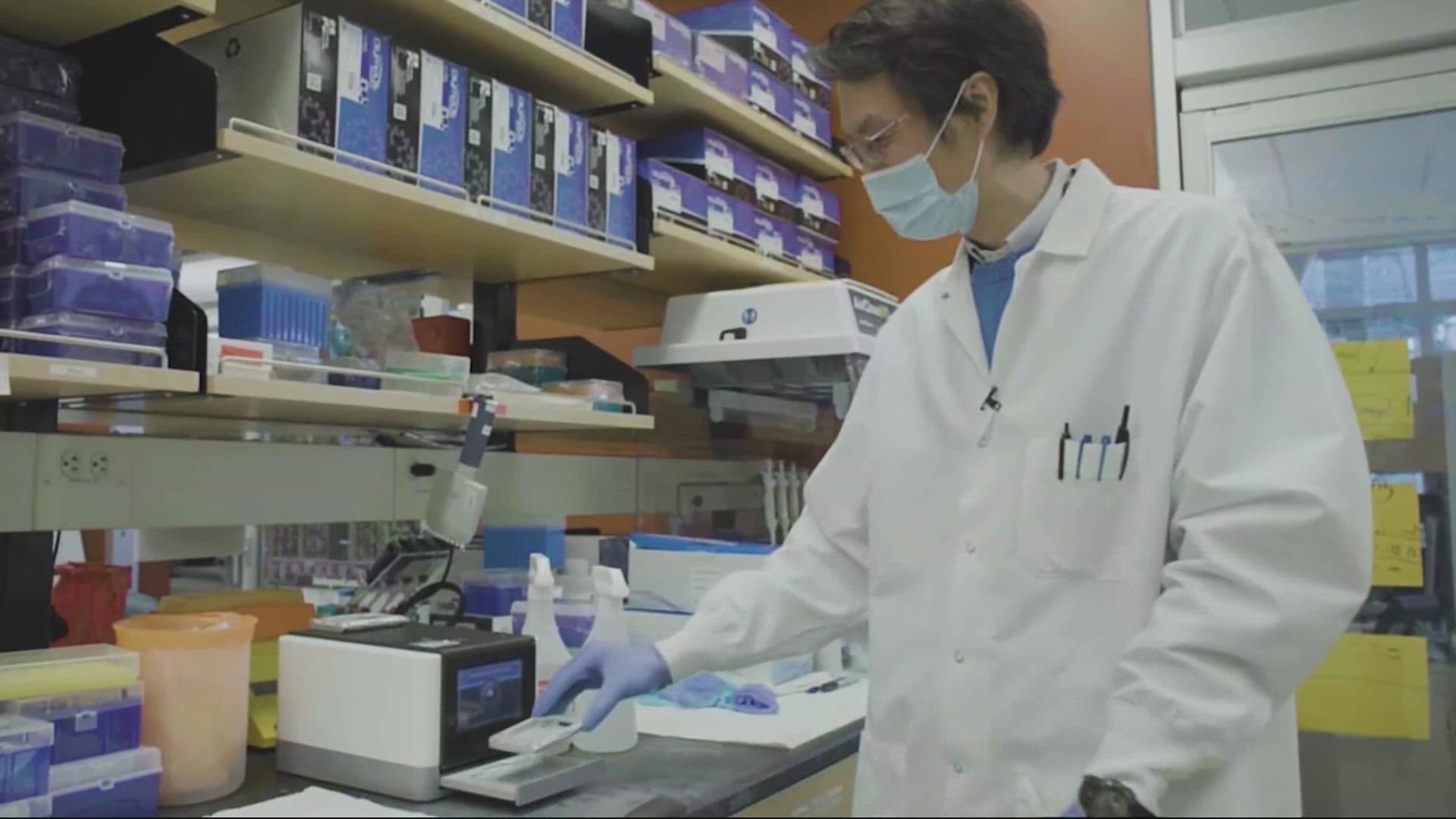PORTLAND, Ore. — Doctors at the Providence Cancer Institute (PCI) in Portland are celebrating the successful application of a new immunotherapy to drastically reduce a patient's tumor size.
The treatment, published this week in the New England Journal of Medicine, came about when Kathy Wilkes of Florida reached out to Providence from across the country. Her pancreatic cancer was back and had metastasized into her lungs.
"It's one of the deadliest forms of cancer," said Dr. Eric Tran, with Earle A. Chiles Research Institute, a division of PCI.
Wilkes had fought her cancer with every conventional treatment, including surgery, radiation and multiple rounds of chemotherapy.
"I knew I did not want to continue doing chemo, it would not save my life," Wilkes said in an interview with Providence. "It might prolong it, but not the quality of life I would want, so I researched immunotherapy."
She found Tran's previous research and asked him for help.
Providence oncologist Dr. Rom Leidner joined Tran to develop a special single-patient trial to tackle Wilkes' cancer case.
"Jumped into action," Leidner said during a news conference in Portland Wednesday.
The adoptive cell therapy involved drawing Wilkes' blood, then isolating her immune system's T cells. Those cells were reprogrammed to target a specific mutation of her cancer cells. Doctors multiplied the invigorated T cells and infused 16 billion of them back into Wilkes in June 2021.
"Cutting edge, almost science fiction sort of approach," Leidner described.
Within 30 days, her tumor had shrunk 62%, and six months later, the tumor had stabilized at a 72% reduction of the original size.
"It's amazing," Wilkes said.
"Living now as if she's cancer free," Leidner added.
Although her tumor is not completely gone, doctors said the treatment is keeping it in check and helping Wilkes live without symptoms.
"I had hope and I had the belief that I was going to live," Wilkes said.
The new treatment is historic.
"Here in Portland, Providence Cancer Institute, first in the world to target a mutation with this sort of therapy," Tran said.
With this single-patient success story, Tran and Leidner plan to expand trials to treat 24 more patients over the next two to three years. They noted similar efforts have not always been successful, but Wilkes' experience shows its possible for patients to live longer and continue to have purpose.
"Surviving cancer and providing hope to other people," Wilkes said.

